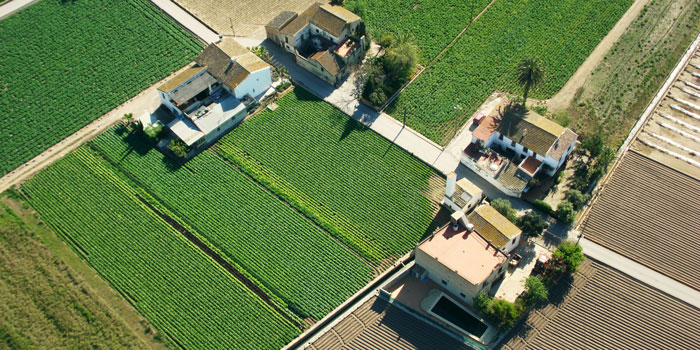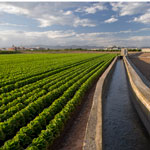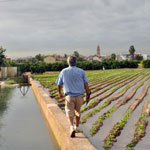Historical Irrigation System at l'Horta de València, Spain
GIAHS since 2019

L’Horta de Valencia covers a surface of 28km2 including the Historical Huerta and a section of the Albufera National Park. It is formed by a systems of fields irrigated by the Turia river that has maintain its traditional features in a densely populated coastal region. The landscape structure derived from this kind of irrigation and fields system is an Arabic heritage, designed during the centuries since the Al-Andalus period.
More than 1200 years ago the Muslims had brought in this area a diet composed by plant and animal products typical of rainy regions. For that reason, it resulted necessary to create an irrigation system to allow the species adaptation to the Mediterranean climate. It was initially an open model of water circulation that evolved in the centuries and allowed the cultivation of rice, vegetables and fruits. The historical structure of the L’Horta landscape is one of the singularities of the area being composed by a dense network of water channels, rural roads and traditional buildings like the alquerias and barracas.
The irrigation system adopted in L’Horta since the Islamic times provides healthy products through 6000 family agricultural farms, including 10 fisheries, and reflects a culture of adaptation to the climate conditions so that could be considered a potential sustainable solution to modern problems.
Twinning program partner: Rice Fish Culture, China
Video
News
Spain’s Horta of Valencia wins recognition on FAO’s global agricultural heritage list
A 1,200-year-old farming and fishing site known as the "Horta" (garden) of Valencia has been recognized on the register of Globally Important Agricultural Heritage Systems (GIAHS), managed by the UN Food and Agriculture Organization (FAO).
Story
A community of farmers and fisherfolk, a community of heroes
A 1,200-year-old farming and fishing site known as the "Horta" (garden) of Valencia has been recognized on the register of Globally Important Agricultural Heritage Systems (GIAHS), managed by the UN Food and Agriculture Organization (FAO).



